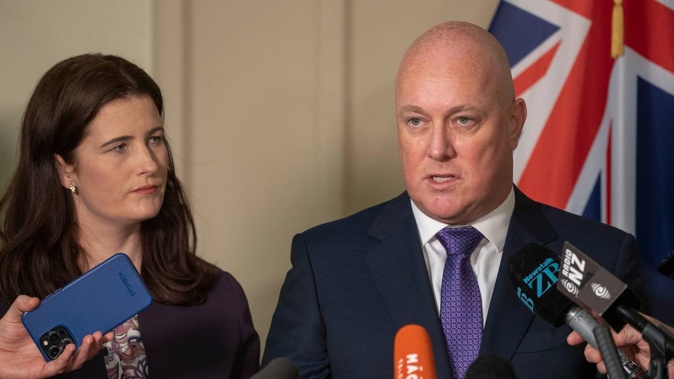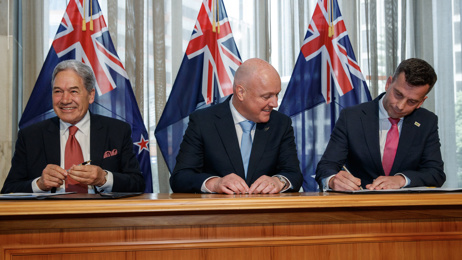
The election campaign moved up a gear on Monday morning with National leader Christopher Luxon confirming that, if necessary, he would pick up the phone to Winston Peters if it was required to form a National-led coalition government. It was, for the most part, a statement of realpolitik – former Prime Minister Sir John Key called it “pragmatic”. Pre-election courtship rituals are unquestionably entertaining, but they matter little once the voters have spoken.
The more interesting element of Luxon’s message was his direct appeal to disaffected Labour voters and his call to arms warning against the complacency of an inevitable National victory.
“Some of you may still be undecided and some of you may have never voted for National before, but respectfully, the last thing New Zealand needs is a coalition of chaos that will be worse than the last six years and take a wrecking ball to our economy.
“If you don’t want that either, then don't leave it to chance. Vote for change.”
There is a concern within Luxon’s inner circle that swing voters who have voted for Labour in 2017 and 2020 may not feel the need to vote National despite being generally dissatisfied with the direction of the country. The view is that complacency is dampening National's share of the vote and letting New Zealand First into the game.
That in part explains David Seymour’s response that he would not sit in a Cabinet with Peters. Seymour has previously not ruled out working with New Zealand First outside a formal coalition arrangement but has made it abundantly clear that it is not his preference.
Whilst National and Labour contest the centreground over the cost-of-living, tax and the economy, the more ferocious battle is being fought between Seymour and Peters over co-governance, Treaty-politics and gender issues. The polls are now so finely balanced between a National-Act government on the one hand and a National-Act-New Zealand First government on the other that pollsters can’t make a call which way the race will break.
The difference in the shape of the government between the two centre-right options is huge and extends far beyond whether a government which includes New Zealand First is too unstable or not. It will determine the extent to which co-governance arrangements are unpicked in legislation, policies and management structures across the public sector beyond the totemic Three Waters and resource management reforms. It will determine how Treaty-politics more generally is addressed and whether David Seymour’s preference of a referendum is favoured. And it could influence the government’s approach to gender issues.
In short, there is everything to play for. Concerns remain whether National can maintain its momentum for the next few weeks although one thing remains clear – Luxon, the political novice, is by far and away the better campaigner than Hipkins. Electioneering defies political experience. It’s not until the leader hits the campaign trail that their ability to connect with voters can actually be measured.
Despite criticism that there seemed to be only a cigarette paper separating Hipkins and Luxon on some issues during the leaders’ debate last week, the real benefit was simply seeing how the two leaders performed when standing side-by-side. Luxon was composed, confident and relaxed throughout the debate exuding a sense of competence that has been sadly lacking from Labour’s Cabinet of late. By contrast, Hipkins appeared shrill and defensive. No wonder, given that Labour has little to boast about after six years in power and has been unable to shift the agenda away from the one promoted by the Ardern government to one more reflective of the priorities of Chris Hipkins. That sentiment was accurately reflected in last night’s Newshub-Reid Research poll which put Christopher Luxon on 24 percent, up 1.5, whilst Chris Hipkins was down 3.4 points to 19.1 percent.
As if to underline the problems that have beset the Labour government this year, yet another one of its MPs, Shanan Halbert, was last week facing accusations of bullying which appear to have been known to the Labour Party leadership for some time.
It is often said that opposition parties do not win elections, but rather that governments lose them. That certainly seems to be the case in this year’s general election. We have a government without a record, bereft of its mega-watt Prime Minister and weakened by a calamitous series of errors which have cost Labour some of its most experienced ministers and prevented its new leader from generating any sort of momentum into the campaign.
National has passed the first hurdle by presenting a competent leader and disciplined shadow cabinet. But it knows that it must now redouble its efforts to woo swing voters away from Labour and deprive New Zealand First of the political ground to its right if it is to form a stable government with the political capital necessary to implement its agenda.
Take your Radio, Podcasts and Music with you









